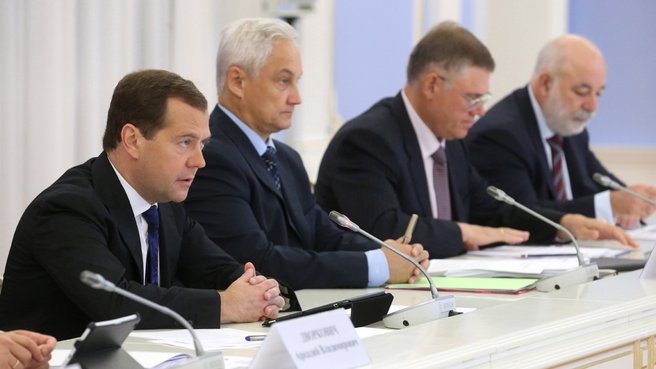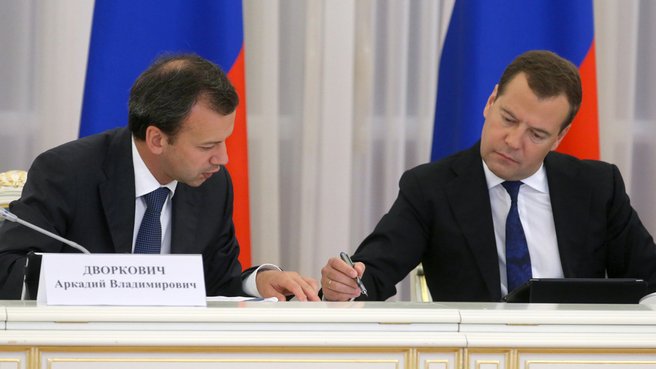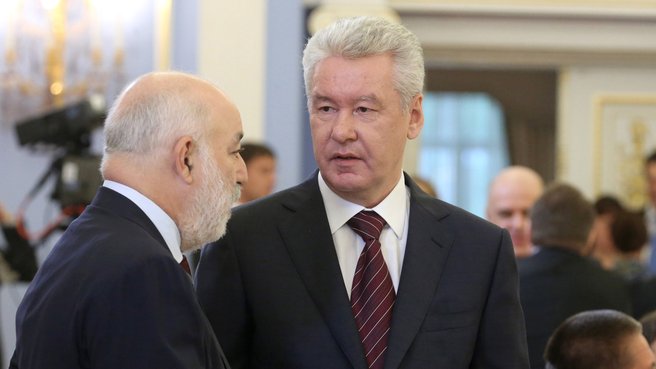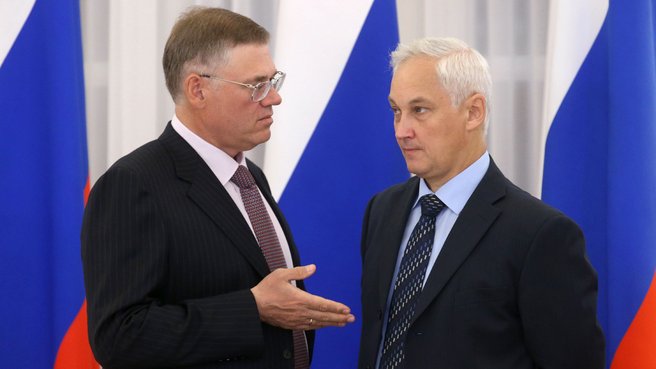The following issues were discussed at the meeting: using electronic government instruments to improve the quality and enhance the accessibility of state and municipal services; modernising the state services system with the use of information and communications technologies.
Transcript of the meeting:
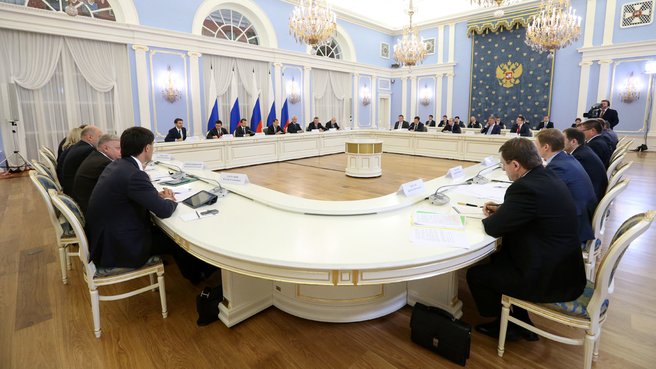
Meeting of the Presidium of the Presidential Council for Economic Modernisation and Innovative Development of Russia
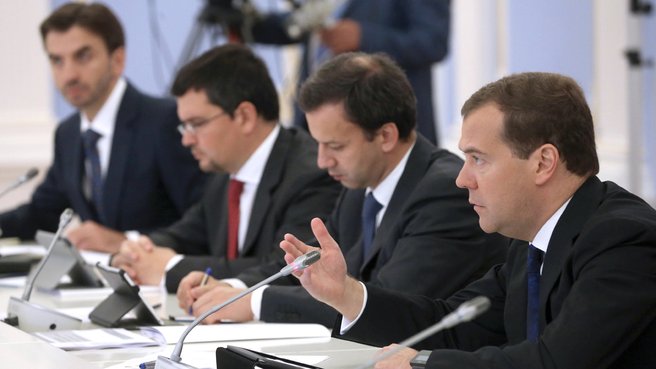
Meeting of the Presidium of the Presidential Council for Economic Modernisation and Innovative Development of Russia
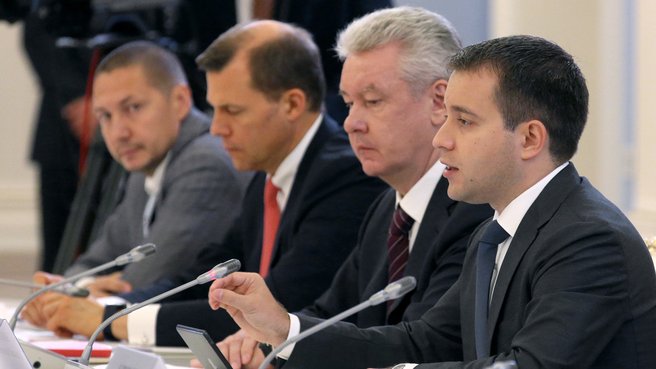
Meeting of the Presidium of the Presidential Council for Economic Modernisation and Innovative Development of Russia
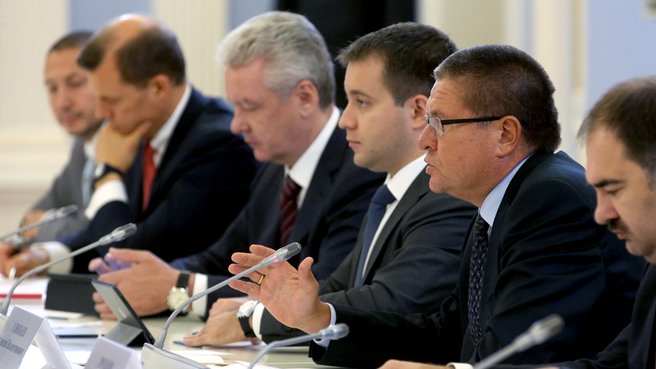
Meeting of the Presidium of the Presidential Council for Economic Modernisation and Innovative Development of Russia
Meeting of the Presidium of the Presidential Council for Economic Modernisation and Innovative Development of Russia
Dmitry Medvedev: Now, let’s move on to the subject of today's meeting. Allow me to say a few words about modern information technology. Obviously, it determines the efficiency of public administration at all levels, including federal, regional and municipal.
By 2018, 70% of Russian citizens should be able to access public services electronically. This is our goal, as you are aware. Currently, this figure is about 20%. The pace of switching to online services is fairly slow, to put it mildly. I suggest returning to this issue again and discussing how we can expedite this process.
This is what I believe should be done. First, we need to create a single federal structure that will offer both online and offline services. I am referring to the single public services portal, which currently has over 4 million registered users, and a network of integrated government service centres (IGSCs), which in fact is growing.
I recently visited one such centre during a business trip to the Kaluga Region, and I’ve been to others as well. Overall, this process is moving ahead, and 700 such facilities have already been created. By 2015, about 3,000 centres will be created. We have recently discussed the possibility of establishing IGSCs for small towns, as heads of regions have suggested doing this on a smaller scale. I’ve promised to consider this. We should, of course, continue financing these projects in the near term. I have already issued corresponding instructions, and this assignment has to be implemented.
Related information
Another option is to use the branches of the Russian Post, provided of course that they are upgraded, all 40,000 of them, and that their staff is appropriately trained to be able to do this work, otherwise it won’t work.
Secondly, we need to define more clearly what it means to provide electronic services. It shouldn’t simply mean placing information about the service on the web page of the relevant agency. We need to create a full-fledged, modern interface that will facilitate interaction with public officials. It should be user friendly, and not only for advanced users, even though their number is growing in Russia, but also for those people who are less computer savvy, people of an older generation, who are interested in using online services.
For instance, we could finally start using electronic enrollment to kindergartens as early as next year. Granted, this should be done where we are ready for this. Furthermore, government agencies and public facilities should themselves obtain the information available in electronic databases, rather than demand that people should submit all sorts of paperwork.
Third, we need to create a system that will make it possible to obtain government and municipal services all over Russia no matter where you live or reside. This is a complex challenge. Usually when I arrive somewhere they show me different innovations. They look nice, but when I ask whether I can use them as a Muscovite, I am told, “No, it’s not possible.” That’s not helpful. If we are talking about creating a modern system, it must be a universal one designed for the whole country.
Modern technology makes it possible to easily identify a citizen wherever they are. This can be done through a bank card, for example, or a SIM card. In the future there will be an electronic passport, which agencies, companies, and regions are working on now.
Fourth, in many countries there are government service portals and civil service information websites. The latter is called the electronic civil service and it makes personnel work more efficient. We also need to develop this kind of website I’m talking about, including the unified system for managing civil service personnel.
In the first and second parts of my report I named only a few issues regarding the use of information technologies. This is a complicated subject, and for nearly ten years I’ve been observing the progress made in this regard in the Government from the different positions I’ve occupied. Progress is very slow, extremely slow. For years, at least in the middle of last decade, money was not spent on the programme Electronic Russia and other similar programmes. That is why I decided to head the Government Commission for IT Integration in Federal and Local Government Bodies. I think this will be useful, as attention from top Government officials always brings extra intensity. I just wanted to inform you.
Let’s start discussing the issues. The Minister of Communications and Mass Media is the first. Mr Nikiforov (addressing Nikolai Nikiforov), please go ahead.
<...>
